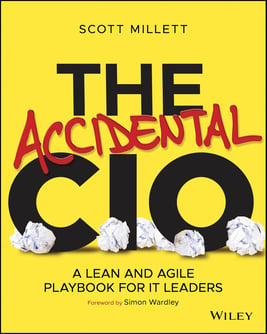JOANI GREEN
Chief Information Officer at S-RM Intelligence & Risk Consulting
Can you please provide a little introduction about yourself
I serve as the Chief Information Officer at S-RM Intelligence & Risk Consulting, based in London. In this role, I lead the strategic direction of our technology initiatives while overseeing a diverse portfolio of responsibilities. Beyond implementing internal technology strategies, I focus on driving digital transformation across our global operations. I work collaboratively with our technology teams to ensure project delivery excellence, resource optimisation, and alignment with our company's strategic goals.
My position involves regular engagement with the C-Suite, where I translate technical complexities into actionable business insights, enabling informed decision-making at the highest level. I'm particularly passionate about leveraging technology to enhance our cybersecurity consulting capabilities while fostering an inclusive and innovative workplace culture.
What has your journey to your position been like? What path have you taken?
My journey in cybersecurity began over a decade ago, starting from an administrative position in a Johannesburg-based cybersecurity consultancy. Despite having no technical background initially, I had a clear vision of transitioning into a technical role. While working in business operations, I pursued a part-time degree in Informatics and actively sought mentorship from senior consultants to build my technical foundation.
This determination led to my first technical role as a penetration testing associate, which evolved into a full-time position as an associate information security consultant. Seeking to expand my expertise, I transitioned to defensive security, specializing in Linux forensic investigations and incident response. A significant milestone in my career was speaking at the DFIR Summit in Prague, establishing myself as a subject matter expert in Linux forensics.
My leadership journey accelerated when I was appointed to head the Incident Response team in London, progressing to Global Head of Incident Response. This role allowed me to demonstrate both technical expertise and strategic leadership capabilities.
Joining S-RM marked another pivotal moment in my career, where I initially served as Technical Director. In this role, I shaped and implemented the technical strategy for our global incident response team while maintaining hands-on involvement in complex investigations.
After 2.5 years of proven success, I was promoted to Chief Information Officer, contributing to S-RM's strategic transformation into a technology-led organisation.
This journey, from an administrative role to CIO, reflects my commitment to continuous learning and the power of a clear career vision combined with dedicated effort.
Has it always been your vision to reach the position you’re at? Was your current role part of your vision to become a tech leader?
My initial vision was centered on technical excellence - I saw myself continuing as a hands-on technical specialist, deeply immersed in the intricacies of cybersecurity and incident response. However, my journey revealed something unexpected: while I maintained my passion for technology, I discovered a profound satisfaction in empowering others and translating technical complexities into organisational success.
As I progressed in my career, I realised that my technical expertise, combined with my ability to connect with and understand people, positioned me uniquely to bridge the gap between technical teams and business objectives. What drives me now is creating an environment where technical talent can thrive and innovate. In my current role as CIO, I have the privilege of working alongside exceptionally skilled professionals across various teams, where I can leverage my technical background to advocate for their needs while steering our technology strategy.
This evolution from pure technologist to technology leader hasn't diminished my technical passion - instead, it's amplified my impact by allowing me to champion both technological excellence and the people who make it possible. I find immense fulfillment in using my experience to remove barriers, create opportunities, and ensure our technical teams feel heard and valued while driving our company's success forward.
Have you had a role model or mentor that has helped you on your journey?
I've been fortunate to have several influential mentors who have shaped my professional journey in different but complementary ways.
Riaan Naude, currently Director of Business and Information Security at LSEG, has been an invaluable constant throughout my career. His mentorship has extended beyond technical guidance to include strategic career planning and leadership development. His consistent support and wisdom have been instrumental in helping me navigate key career decisions and professional challenges.
Christine Bejerasco, CISO at WithSecure, has been both a mentor and an inspiration. Her leadership in cybersecurity has shown me what's possible in this field. Christine's unwavering belief in my capabilities, particularly during moments of self-doubt, has been transformative. She has helped me recognise and embrace my potential, pushing me to take on challenges I might have otherwise hesitated to pursue.
Kunjal Tanna, founder of LT Harper, has been instrumental in a different way. As both a close friend and business mentor, she has helped me build crucial industry connections and develop a broader perspective of the cybersecurity landscape. Her generosity with her time and network has opened doors and created opportunities that have significantly impacted my career trajectory.
Each of these mentors has contributed uniquely to my growth - from technical expertise and leadership development to network building and personal confidence. Their collective guidance has been invaluable in shaping both my career path and leadership style.
How do you see the role of the technology leader evolving over the next 5 years?
The role of technology leaders is undergoing a fundamental transformation that will accelerate over the next five years. While traditional responsibilities around infrastructure and systems remain important, tomorrow's technology leaders must evolve into multifaceted strategists who can navigate an increasingly complex landscape.
First and foremost, technology leaders must maintain a deep technical understanding while simultaneously broadening their expertise. This means staying intimately familiar with emerging technologies like AI, machine learning, and big data analytics - not just at a high level, but understanding the practical implications, limitations, and ethical considerations of these tools. The rapid advancement of AI in particular demands leaders who can evaluate its potential while being acutely aware of the associated risks, compliance requirements, and regulatory frameworks that are still evolving.
The regulatory landscape around technology is becoming increasingly complex, particularly concerning data privacy, AI governance, and cross-border data flows. Future technology leaders must become adept at navigating these challenges while maintaining innovation and competitive advantage. This requires developing strong partnerships with legal and compliance teams and building these considerations into technology strategy from the ground up rather than treating them as afterthoughts.
Perhaps most critically, technology leaders must evolve into talent cultivators and culture shapers. As technology becomes more sophisticated, the challenge isn't just about implementing systems - it's about building and nurturing teams with diverse skill sets who can adapt to rapid change. This means creating environments that encourage continuous learning, experimentation, and growth while ensuring psychological safety and inclusive practices.
The next five years will also see technology leaders increasingly involved in broader business strategy and environmental, social, and governance (ESG) initiatives. Technology decisions will need to be evaluated not just for their business impact, but for their environmental footprint, social implications, and alignment with corporate values.
Success in this evolving landscape will require technology leaders to be more adaptable and collaborative than ever before, working across organisational boundaries to drive holistic transformation while ensuring technical excellence, regulatory compliance, and sustainable innovation.
What skills do you think leaders of the future will need in order to thrive?
Future leaders will need to master a unique blend of technical, emotional, and adaptive skills to thrive in an increasingly complex business environment.
Emotional intelligence and empathetic leadership will become even more critical as workplaces continue to evolve. Leaders must excel at understanding and addressing the diverse needs of their teams, particularly in hybrid and remote work environments. This includes the ability to foster inclusion, build psychological safety, and maintain strong team cohesion across different working models.
Adaptability and resilience will be essential traits. The pace of technological change means leaders must be comfortable with constant evolution, able to pivot strategies quickly, and capable of leading their teams through uncertainty. This includes the ability to make decisions with incomplete information and help teams navigate through ambiguous situations.
Strategic thinking paired with technical literacy will be non-negotiable. While leaders don't need to be technical experts in every area, they must maintain enough technical depth to make informed decisions about emerging technologies like AI, blockchain, and quantum computing. This includes understanding both the potential and limitations of these technologies and their implications for business strategy.
Cross-cultural competence and inclusive leadership will become increasingly important in our globally connected world. Leaders must be able to bridge cultural differences, leverage diverse perspectives, and create environments where innovation can flourish through the combination of different viewpoints and experiences.
Additionally, future leaders will need to be skilled at managing the ethical implications of technology deployment. This includes understanding privacy concerns, data protection requirements, and the societal impact of technological decisions. The ability to balance innovation with responsible implementation will be crucial.
Most importantly, future leaders must maintain a growth mindset and commitment to continuous learning. The landscape is evolving too rapidly for static knowledge or fixed approaches to remain effective. Success will depend on the ability to continuously adapt, learn, and grow alongside their teams and organisations.
Is there anything in particular that you would still like to achieve in your career or what is the next step on your journey?
While I'm proud of my technical journey and current leadership role, I'm passionate about continuing to grow and evolve. My next focus is on deepening my understanding of building and scaling successful businesses. I want to work closely with accomplished business leaders and entrepreneurs who have successfully grown companies, learning from their experiences in strategic decision-making, market expansion, and organisational development.
I believe that combining my technical expertise with enhanced business acumen will allow me to make an even greater impact, both within my organisation and in the broader technology sector. I'm particularly interested in understanding how successful businesses navigate periods of rapid growth while maintaining their culture and values, especially in the technology and cybersecurity sectors.
Beyond this, I remain committed to expanding my role in mentoring and supporting diverse talent in technology. I want to create more pathways for underrepresented groups to enter and succeed in technical leadership roles, leveraging my own experience and growing network to open doors for others.
Looking ahead, I see myself taking on challenges that combine technological innovation with business growth while continuing to champion diversity and inclusion in our industry. I believe that mastering the business aspects of leadership, alongside my technical background, will position me to drive meaningful change and create a lasting impact in the technology sector.
What advice would you give to aspiring technology leaders who are just starting their careers?
The most important advice I can share from my journey is this: don't become your own biggest obstacle. I've learned that we often build mental barriers for ourselves, doubting our capabilities or creating reasons why we 'aren't ready' or 'don't fit the mould' of a technology leader. These self-imposed limitations are often more restrictive than any external challenges we face.
Passion and perseverance are your most powerful assets. When I started in an administrative role with no technical background, I could have easily convinced myself that a leadership position in technology was out of reach. Instead, I let my genuine enthusiasm and curiosity for the field drive me forward, taking every opportunity to learn and grow, regardless of how small it seemed at the time.
Don't wait until you feel '100% ready' to pursue opportunities - that moment rarely comes. If you have the drive and willingness to learn, take the leap. Technical skills can be acquired, knowledge gaps can be filled, but self-doubt can hold you back indefinitely if you let it.
Remember that everyone's path is different. Don't measure your journey against others or feel pressured to follow a 'traditional' career trajectory. What matters is your dedication to continuous learning and your willingness to push beyond your comfort zone.
Most importantly, believe in yourself unequivocally. If you want something badly enough and are willing to put in the hard work, there's no limit to what you can achieve. Your passion, combined with persistent effort, will open doors you might never have thought possible.
"Don't become your own biggest obstacle."
How do you measure and communicate the value and impact of technology initiatives to other business leaders and stakeholders?
For each major initiative, I establish clear metrics aligned with business objectives from the outset. These typically include traditional ROI measures, but also extend to more nuanced indicators like improved operational efficiency, enhanced security posture, reduced time-to-market, or increased team productivity. For example, when implementing new security measures, we track not just incident reduction, but also the positive impact on client trust and business development.
I've found that stakeholder communication is most effective when structured in three layers:
Strategic impact - how the initiative supports broader business goals
Operational benefits - tangible improvements to day-to-day operations
Risk mitigation - how we're protecting business value and reputation
Regular stakeholder updates focus on outcomes rather than technical details. I use data visualisation and real-world examples to illustrate progress and impact. This might include dashboard metrics showing productivity gains, customer satisfaction improvements, or cost savings achieved through automation.
I also emphasise the human element of technology initiatives. Beyond metrics, I share stories about how our technology investments are empowering our teams, improving client experiences, or enabling new business capabilities. This holistic approach helps create a shared understanding of technology's value across the organisation.

A big thank you to Joani Green from S-RM Intelligence & Risk Consulting for sharing her journey to date.
If you would like to gain more perspective from Tech Leaders and CIOs you can read some of our other interviews here.
June 19, 2025


